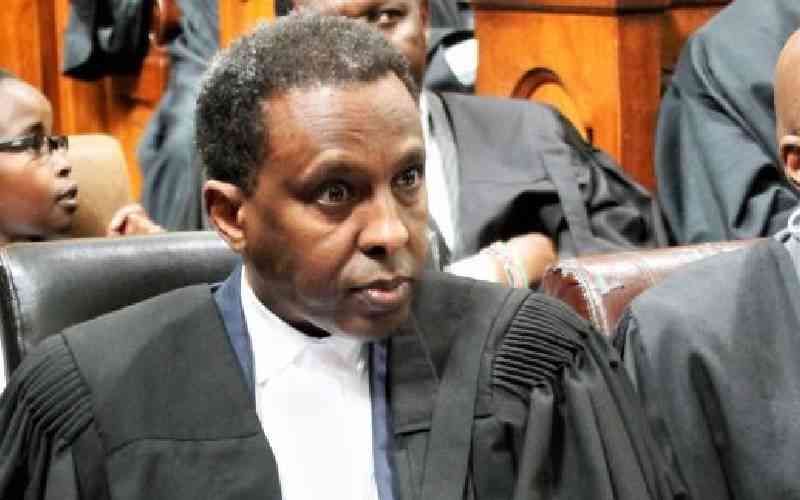×
The Standard e-Paper
Stay Informed, Even Offline

On December 15 last year at around 9am, senior lawyer Ahmednasir Abdullahi's law firm filed an appeal before the Supreme Court, challenging a landmark judgment allowing children out of wedlock in Muslim relationships to inherit from their parents.
In the Court of Appeal Judgment, a three-judge bench comprising Justices Gatembu Kairu, Pauline Nyamweya, and George Odunga agreed that despite Islam religion abhorring sex before marriage, it is unfair to sideline children born from such escapades when their fathers die.